How did Japan, a country of the future, power, and innovation, become a land of the past, old age, and inertia?
Where are Japan's golden years?
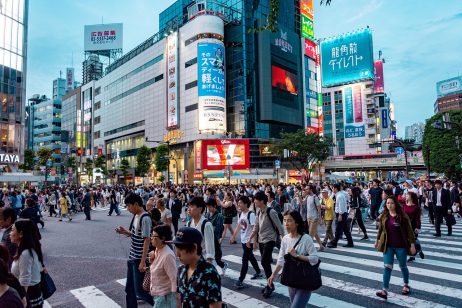
Japan, the land of the rising sun, once a vision of the future, today seems to be trapped in the shadow of its own history. This nation, which shaped the global economic scene, is now grappling with challenges that question its long-term impact on global markets and even more – its survival prospects.
After the destruction of World War II, Japan achieved phenomenal growth, transforming itself into an economic powerhouse. In the post-war period, thanks to a combination of technological innovation, effective management, and global expansion, Japan became one of the world's major economic players. In the 1980s, during the so-called 'bubble era', Japan experienced unprecedented growth in property and stock values, and its influence on global markets was undeniable and immense.
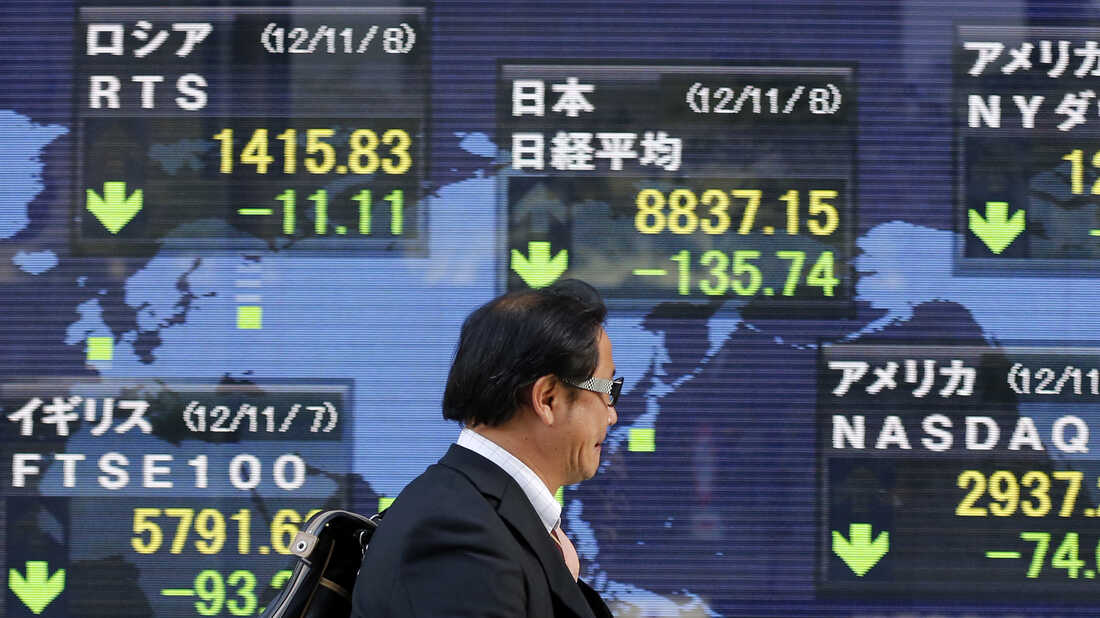
Let's take a closer look at how Japan, referring to its roots and history, is trying to find its place in a rapidly changing world. Let's consider what the future holds for a nation that was once synonymous with an economic miracle, and today faces fundamental challenges.
 Baburu Jidai: The unannounced end of awakened hopes
Baburu Jidai: The unannounced end of awakened hopes
After the end of World War II, Japan, like a Phoenix, rose from the ashes, transforming itself into one of the world's most powerful economies. The post-war years were characterized by dynamic growth, where industrial production and exports fueled an extraordinary transformation. In the 60s and 70s, Japan managed to achieve an average annual GDP growth of about 10%, a result of impressive industrialization policies and investments in new technologies. Japanese brands such as Sony, Mitsubishi, and Toyota became global symbols of innovation and quality.
However, the true apex of Japan's success was the 'bubble era' of the 80s, when asset and property values reached astronomical heights. At that time, the real estate market in Tokyo and Osaka was so overvalued that the value of several key districts was comparable to the entire state of California. This unparalleled prosperity was driven by loose monetary policy and mass speculation, making Japan synonymous with an economic miracle.
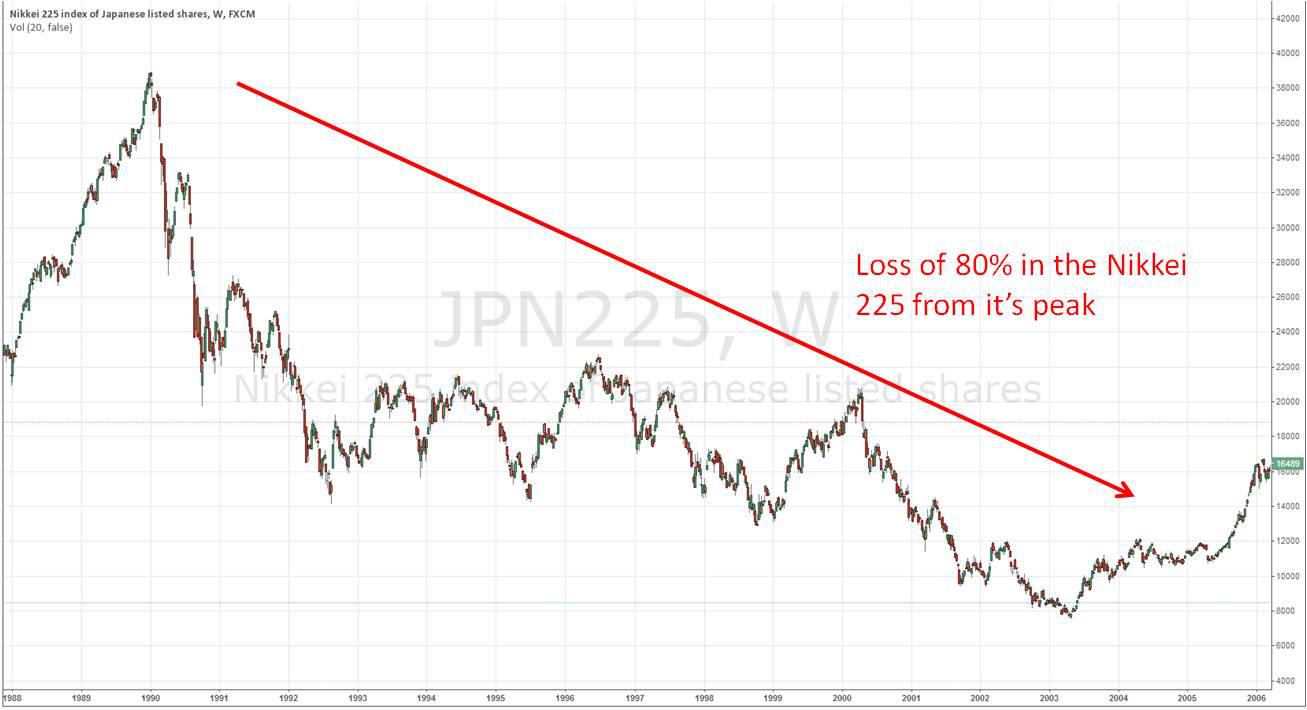
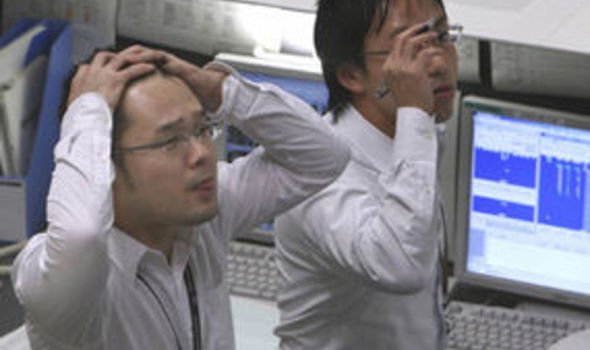
Japan, which was once a symbol of economic power, suddenly found itself in a situation where traditional development models were no longer effective. In this new context, Japan struggled with challenges such as an aging society, innovation slowdown, and resistance to structural changes that were necessary to regain its former glory.
The Grim Demographic Landscape of Japan
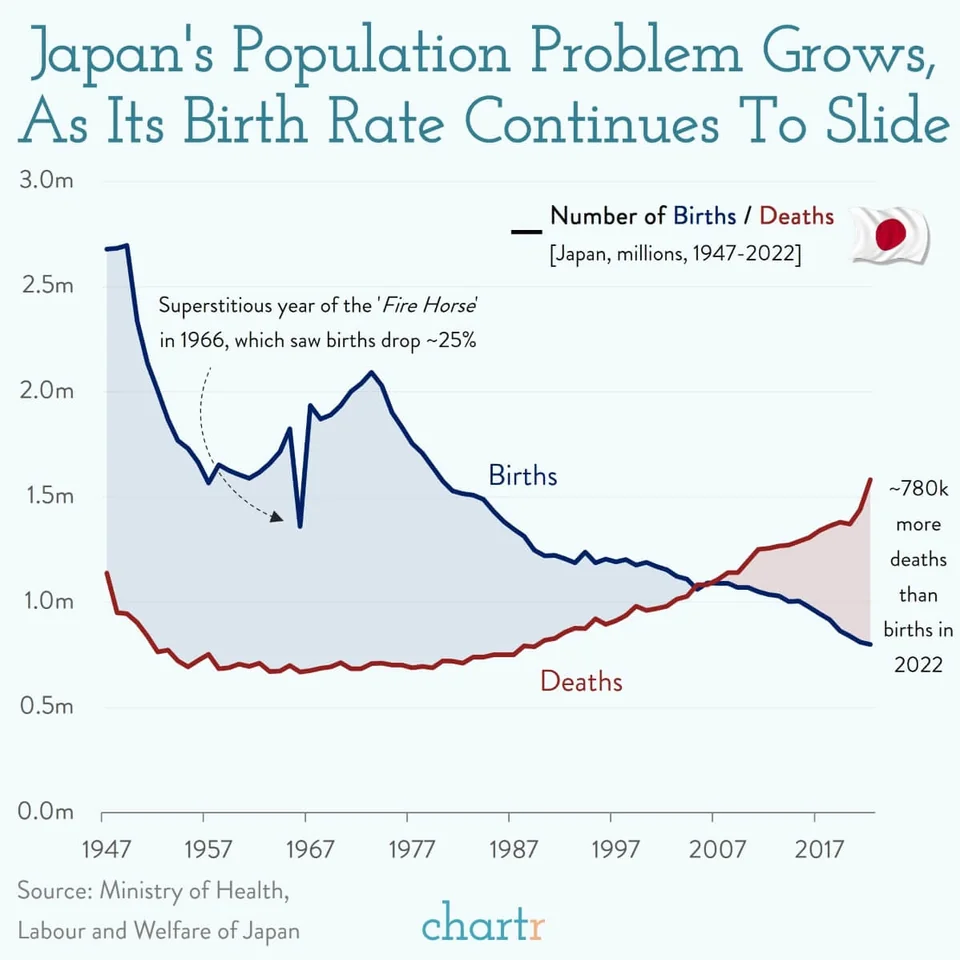
The decline in birth rates in Japan is alarming – in 2020, the number of births fell to a record low of just over 840,000, a drop of 30% compared to 2000. Japan has also recorded a historically low fertility rate – just 1.34 children per woman, which is far below the replacement level of 2.1.
These demographic changes have a profound impact on Japanese society and economy. The aging population raises questions about the long-term stability of healthcare and pension systems, increasing pressure on younger generations who must support a growing number of elderly people.
As the society ages, Japan faces the problem of a shrinking workforce. According to 2021 data, the working-age population (15-64 years) constituted about 60% of the total population, a decrease compared to nearly 70% in 1995. This change significantly affects the country's economic growth potential, limiting its ability to innovate and maintain competitiveness in the global market.
Unfortunately, despite these challenges, Japan remains relatively closed to immigration. Even though the country is home to various ethnic groups, such as the Ainu, Okinawans, and Koreans, the overall share of the foreign-born population remains low, around 3%. This resistance to greater immigration limits Japan's ability to refresh its workforce and energize its economy.
These demographic changes are also reflected in culture and social perceptions. In Japan, the number of so-called 'hafu', or people with one foreign parent, is increasing. This rise in ethnic diversity in Japanese society is slowly but inevitably changing the social fabric of the country.
Conditions of Economic Stagnation
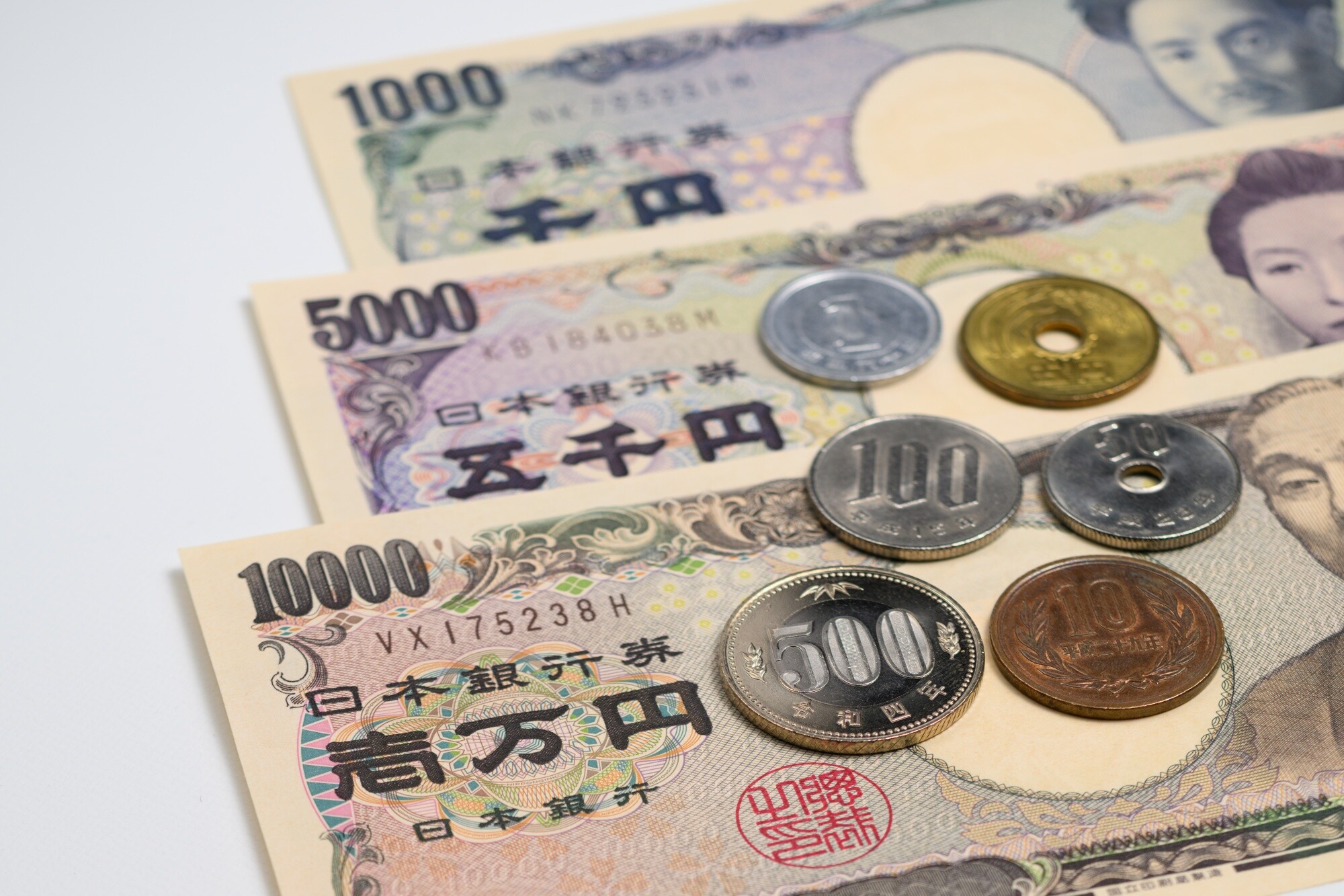
One of the main factors contributing to this stagnation is excessive regulation and bureaucracy. For example, in Japan, there are numerous regulations and procedures that limit innovation and efficiency, as can be seen in the transportation sector. In addition, huge amounts of public funds are allocated to projects of questionable public utility, such as replacing manhole covers with artistic projects, costing up to five hundred dollars each.

Reduced income and financial uncertainty also affect social changes, such as the decline in marriage and birth rates. According to 2020 data, over 40% of young Japanese aged 18-34 have never been in a marital relationship, and more than 70% of young men are not in stable relationships. This, in turn, contributes to a further decline in the natural increase.
The impact of stagnation is also visible in urban infrastructure. Many urban areas that were once bustling with life are now gradually becoming deserted, and many homes remain empty, losing their value. Healthcare and pension systems are facing challenges associated with an aging society, resulting in increased burdens on younger generations.
In summary, economic stagnation in Japan is a complex problem rooted in many factors, including demographic structure, bureaucracy, and restrictive immigration policy. Its effects extend beyond the economic sphere, deeply impacting society, culture, and the daily life of Japanese people.
Cultural and Political Resistance to Change
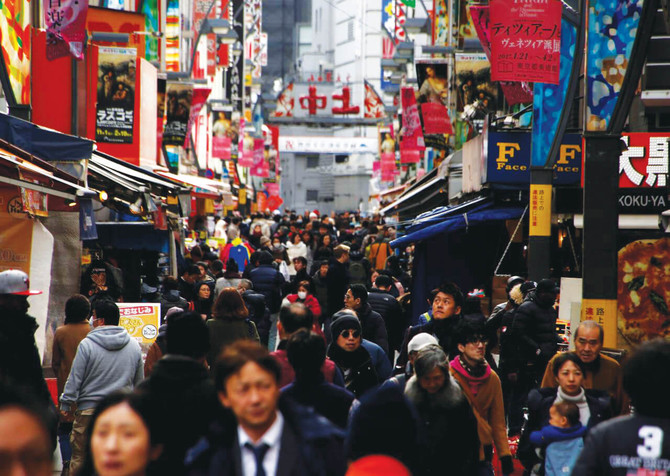
Cultural aversion to risk and change is also evident in society, where younger generations often take on traditional roles and expectations. Although there are certain shifts in social norms, there is still a strong attachment to traditional patterns of behavior, such as the role of women at home and in the workplace, and expectations of men as the primary breadwinners of the family.

These political structures hinder the introduction of necessary reforms that could counter demographic and economic challenges in the country. For example, despite the obvious need to increase the workforce through immigration, long-standing political resistance to opening borders to immigrants remains unresolved.

In this context, Japan faces the challenge of finding a way to harmonize its rich heritage with the needs and challenges of the modern world. What this balance will look like in the future remains a key question for the country's further development and prosperity.
Ecology and the Japanese Economy: Challenges and Costs
 The Economic Shadow of Climate Change
The Economic Shadow of Climate Change
Japan, as an island nation, is particularly vulnerable to the effects of climate change, such as rising sea levels, extreme weather events, and increased frequency of natural disasters. These changes have a direct impact on the economy, causing losses in sectors such as agriculture, fisheries, and tourism. For example, the increasing frequency and intensity of typhoons not only cause direct damage but also disrupt supply chains, affecting production and exports.
 Ecological Limitations and Innovations
Ecological Limitations and Innovations
Japan also faces the challenge of limited natural resources, which forces it to seek innovative solutions in sustainable energy and technology. Implementing measures to reduce CO2 emissions, such as renewable energy technologies, can be costly for traditional industrial sectors. However, these actions can also create new opportunities in the green technology and renewable energy sectors.
 Costs of Natural Disasters
Costs of Natural Disasters
Japan is also frequently affected by natural disasters, such as earthquakes, tsunamis, and volcanic eruptions. The costs associated with rebuilding after such disasters can be enormous, burdening the economy and public finances. For example, the Fukushima disaster in 2011 not only had a huge impact on the local community but also caused long-term effects on the Japanese energy industry and environmental policy.
In Search of a New Direction for Development
The future of Japan, a country grappling with many challenges, is a subject open to a variety of speculations and scenarios. Faced with economic stagnation, an aging population, and global changes, Japan must redefine its role on the international stage and its internal development model.
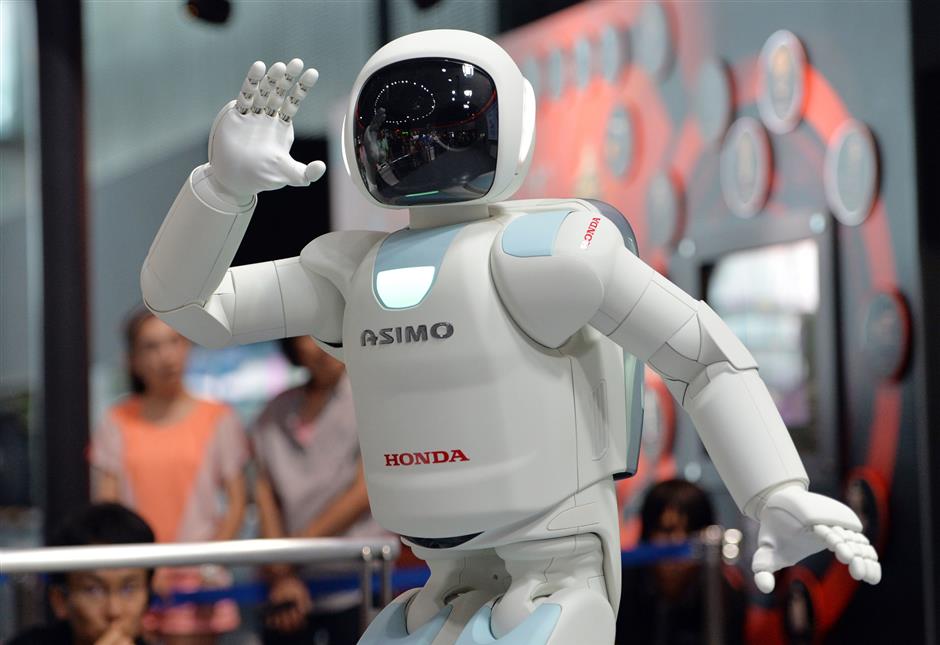
Another scenario is to intensify efforts to stimulate economic growth through structural reforms. This could include further liberalizing the labor market, promoting greater professional activity among women, and gradually opening up to controlled immigration to compensate for the decline in the working-age population.
 Political and Social Reforms
Political and Social Reforms
At the political level, Japan may need deep reforms that break the current impasses and allow for more effective management of contemporary challenges. This could involve increasing transparency in decision-making processes, promoting greater diversity in politics, and taking bolder steps towards international integration.
In the social sphere, further promotion of openness and tolerance will be important. Strengthening the role of younger generations, who are more open to global influences and diversity, could be key to creating a more dynamic and integrated society.
Vision for the Future
The vision for Japan's future could combine traditional values with modern solutions. Preserving its rich cultural heritage while opening up to new ideas and technologies could allow Japan to find a unique path of development. Ultimately, the success of these endeavors will depend on Japan's ability to adapt and be flexible in the face of a rapidly changing world.
However, for these changes to be possible, a willingness to break long-established cultural and political barriers is necessary. History shows that Japan has the ability for incredible transformation and renewal. The question is whether it is ready for another round of changes, necessary to secure its place in the future.
"Strong Japanese Women"
see book by the author
of the page
未開 ソビエライ
An enthusiast of Asian culture with a deep appreciation for the diverse philosophies of the world. By education, a psychologist and philologist specializing in Korean studies. At heart, a programmer (primarily for Android) and a passionate technology enthusiast, as well as a practitioner of Zen and mono no aware. In moments of tranquility, adheres to a disciplined lifestyle, firmly believing that perseverance, continuous personal growth, and dedication to one's passions are the wisest paths in life. Author of the book "Strong Women of Japan" (>>see more)
Personal motto:
"The most powerful force in the universe is compound interest." - Albert Einstein (probably)
Mike Soray
(aka Michał Sobieraj)
未開 ソビエライ
An enthusiast of Asian culture with a deep appreciation for the diverse philosophies of the world. By education, a psychologist and philologist specializing in Korean studies. At heart, a programmer (primarily for Android) and a passionate technology enthusiast, as well as a practitioner of Zen and mono no aware. In moments of tranquility, adheres to a disciplined lifestyle, firmly believing that perseverance, continuous personal growth, and dedication to one's passions are the wisest paths in life. Author of the book "Strong Women of Japan" (>>see more)
Personal motto:
"The most powerful force in the universe is compound interest." - Albert Einstein (probably)
Mike Soray
(aka Michał Sobieraj)
Write us...
Ciechanów, Polska
dr.imyon@gmail.com
___________________
inari.smart
Would you like to share your thoughts or feedback about our website or app? Leave us a message, and we’ll get back to you quickly. We value your perspective!
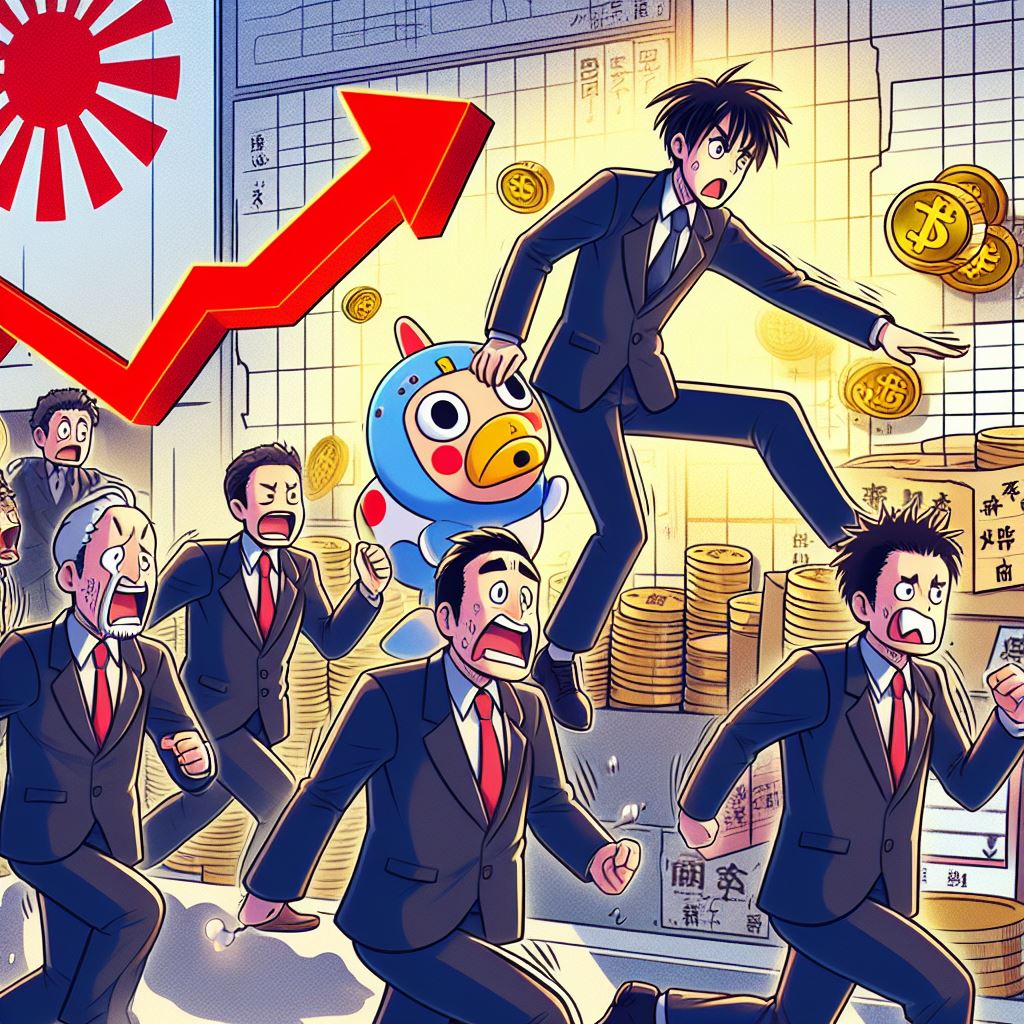 Baburu Jidai: The unannounced end of awakened hopes
Baburu Jidai: The unannounced end of awakened hopes
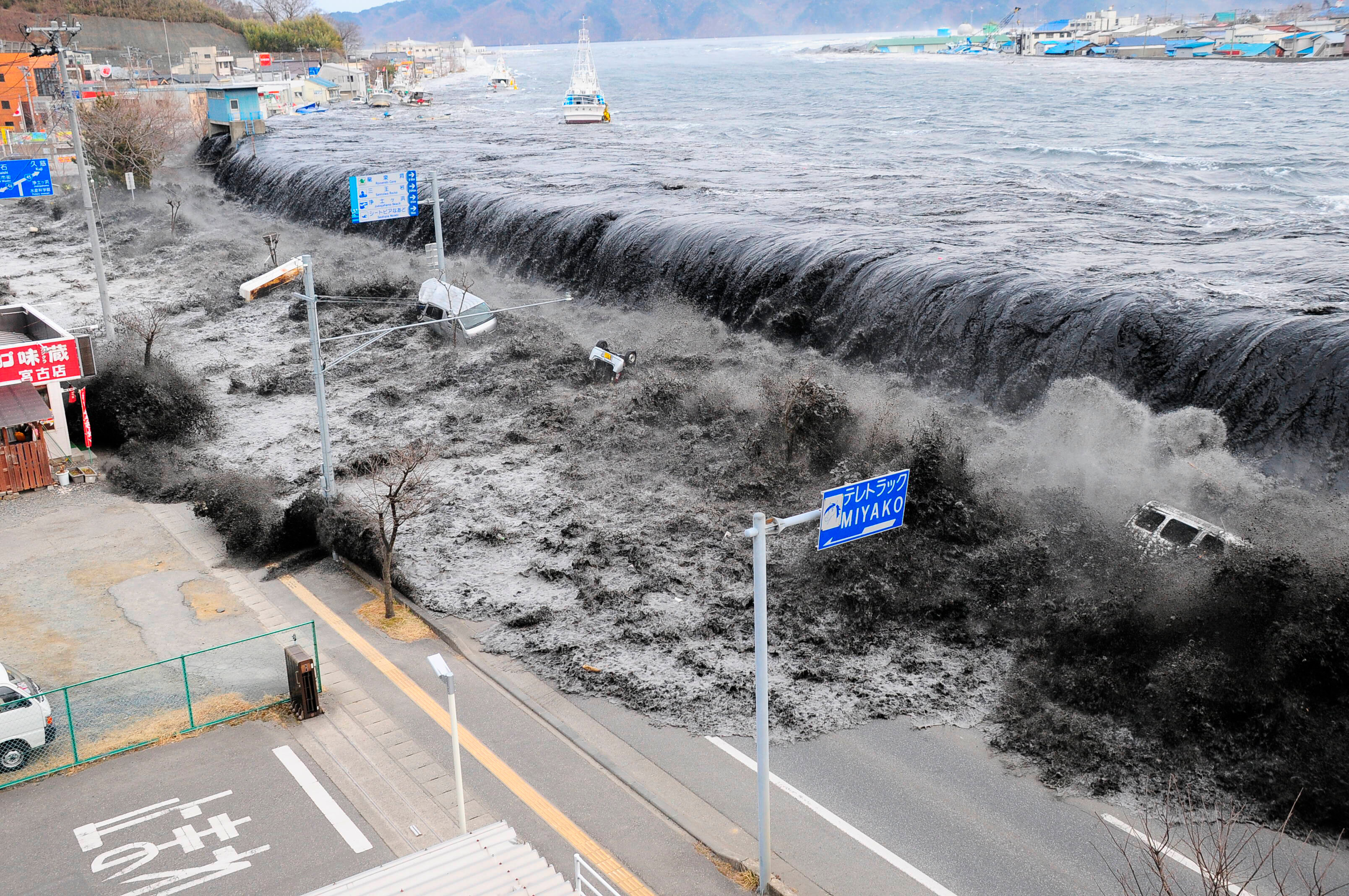 The Economic Shadow of Climate Change
The Economic Shadow of Climate Change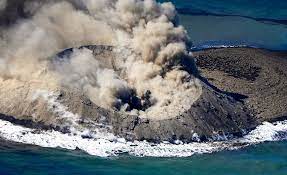 Ecological Limitations and Innovations
Ecological Limitations and Innovations Costs of Natural Disasters
Costs of Natural Disasters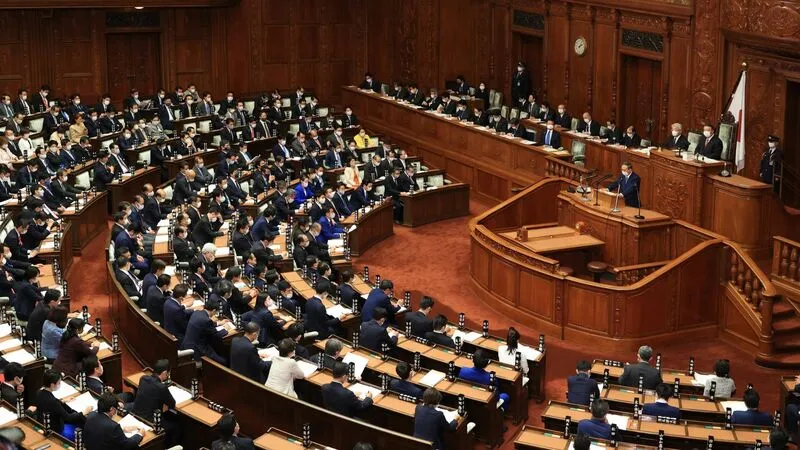 Political and Social Reforms
Political and Social Reforms

